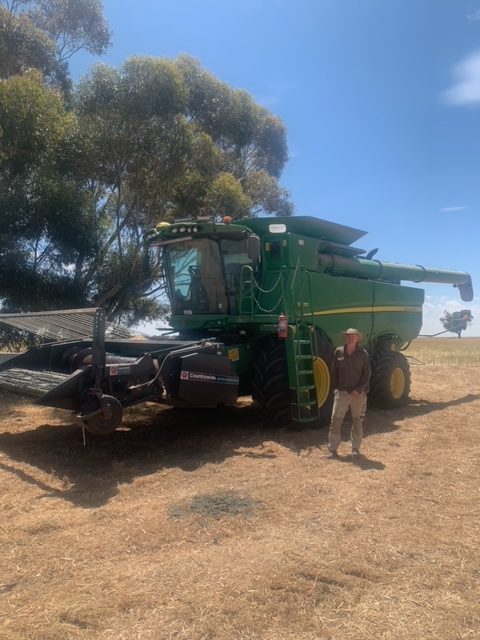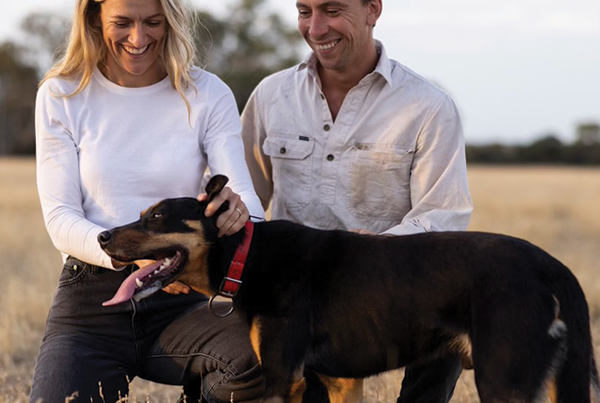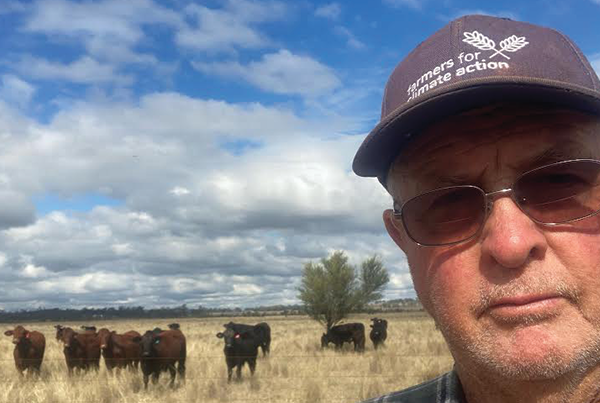At a glance
Who: Hugh Drum
What: Primarily cultivating wheat, canola, lentils, and also engaging in carbon farming
Where: Wimmera, Victoria, Australia

I took over my family’s farm in the early 2000s, during a challenging period marked by severe droughts. This experience drove me towards agricultural research, with a particular passion for soil science that I continue to pursue.
Can you tell us about your property/enterprise?
I currently serve as the farm manager on a property where we focus on canola, wheat, and lentil cultivation. Over the years, we’ve been committed to sustainable farming practices, optimising crop yields, and prioritising soil health. In addition to our primary farming activities, we’ve embarked on a side project called ‘Beverly Foods.’ Here, we’ve ventured into selling lentil burgers in the Sydney market through virtual integration. What’s fascinating about this endeavour is our aim to generate revenue and carbon credits from lentil production. For every lentil burger we sell, we earn a carbon credit, and we get an additional credit for reducing beef burger consumption, resulting in two credits for every lentil burger sold. While our core business centres around carbon-neutral food, carbon credits serve as the icing on the cake.
What are some of the opportunities you see for your business/property in coming years?
I’m committed to realising the full potential of the carbon credits we generate. Currently, we’re selling these credits on the international market, but my hope is for the Australian market to align with global standards. I envision significant growth in the Australian carbon credit market, offering farms like mine the deserved value for producing carbon-neutral food.
And what are your main challenges now, and into the future?
At present, my primary challenge is navigating the market. Convincing the market to pay for carbon-neutral food production is no small feat.
How has climate change impacted your farm business?
Climate change has had a profound impact, particularly when I was managing my family farm during the early 2000s droughts. Ensuring the farm’s resilience against future climate-related challenges has become increasingly expensive, straining our resources.
What are some of the on-farm adaptations or changes you’ve been employing in recent years and what’s driving them? How successful have they been, and what benefits have you seen as a result? (have you collected any evidence of these benefits, and if so could you share this?)
In 2014, our property’s owner, Andrew, conducted soil tests to determine the organic carbon baseline in our soil. In March 2023, a follow-up soil test revealed that our farm has been sequestering an impressive 6.5 tonnes of carbon per hectare annually.
What are your hopes for Ag in Australia, into the future?
I’m a self-described ‘born optimist,’ and I remain positive about the changing perspective of Australians regarding environmental concerns. I believe that this shift in outlook will ultimately transform the market. With a growing population, I hope to see more people embrace dietary changes, favouring legumes over meat and gaining a deeper understanding of the origins of their food.







Hi,
I am a Ph.D. student and we are conducting research for a Ph. D. project on “Carbon farming: role and implications for broadacre agriculture” at Federation University, Australia. Your role as a farmer/farming organization is crucial in this research, and your insights will significantly contribute to the success of this project. Kindly share your email address so I can share the survey and, if you could share the survey among farmers to get their valuable response. This would be a great help. thanks
Kind regards: Kashif